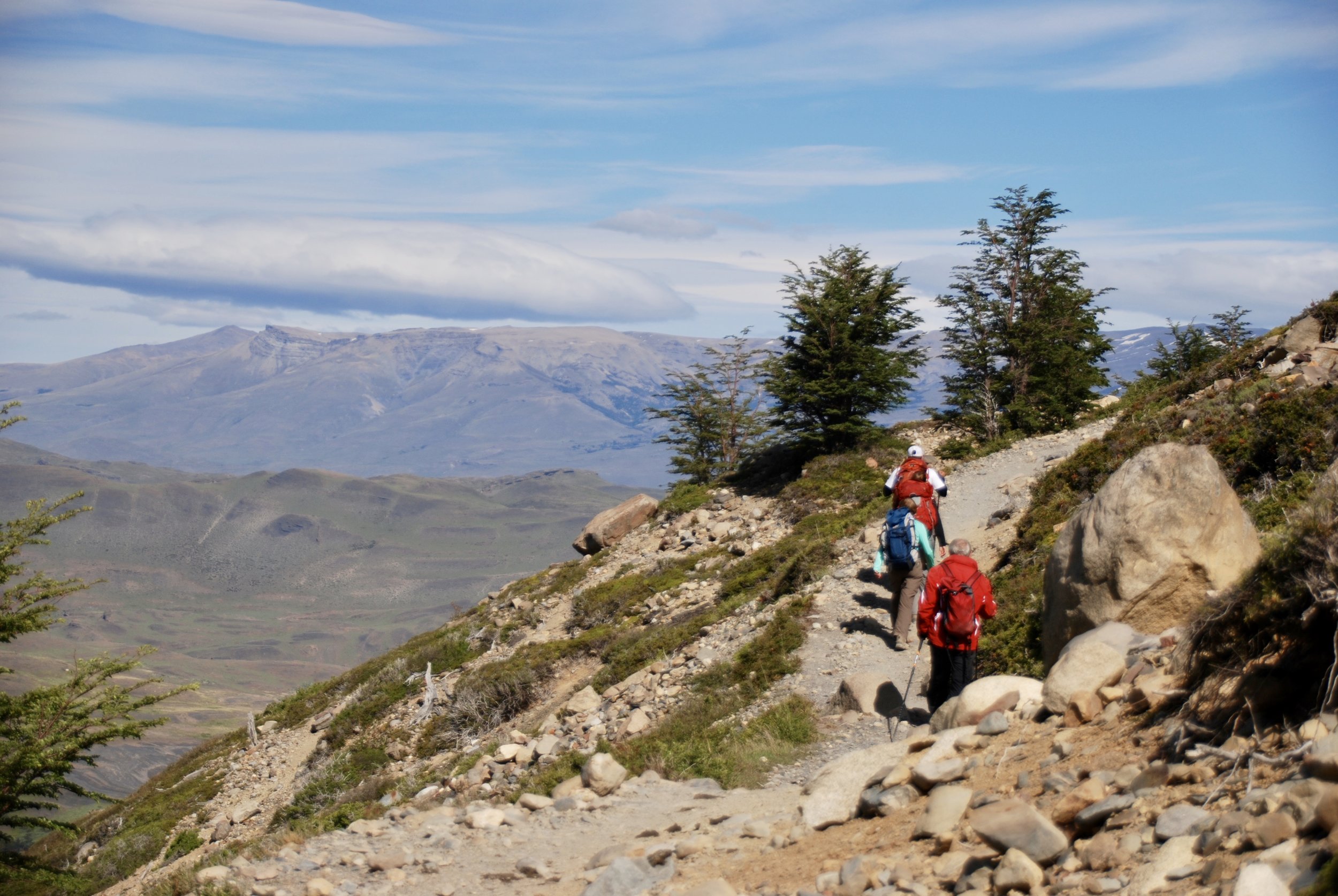Frequently Asked Questions
Does it matter what time I arrive or depart?
- If you arrive/depart at any time on the scheduled start/end dates of your trip, OneSeed will arrange for airport transfers. Pickup will be arranged to efficiently transfer clients with flight times in close proximity (generally within one hour of each other). If you plan to arrive before the scheduled start date or stay past the end date of your trip, you will need to coordinate your own airport transfer or purchase a trip extension through OneSeed.
Do I need a visa? And what about passport requirements?
- Visas are not required for US citizens for tourist visits less than 90 days, but you will need a Tourist Card (free upon arrival). Please keep your passport and tourist card with you at all times during your expedition.
- Check the latest Chile entrance requirements on the US Embassy website.
- Your passport must be valid for six months after your country departure date. It should also have at least one blank page for any necessary stamps.
What happens if my trip is altered due to unforseen circumstances?
Per the Assumption of Risk and Liability Waiver Agreement, if your expedition must be altered at any point, you are responsible for any additional costs.Canceled flights and transportation strikes happen. We do our best to ensure that your experience is unaltered by handling the situation efficiently and smoothly. For complete terms and conditions, see here. We recommend reviewing optional trip cancellation and interruption insurance to cover expenses in these instances. Some instances that have come up are:
- A twisted ankle one week before a trip
- Power outages in the Atlanta airport leaving travelers stranded
- Burst appendix!
- Earthquakes or floods cutting a trip short
DO I NEED ANY IMMUNIZATIONS OR MEDICINE?
Talk to your physician and follow recommended CDC guidelines found here.
WILL WE NEED TO FILTER WATER?
The water along the trail is safe to drink, whether that's straight from the tap or off a glacier.
WHAT FOOD SHOULD I EXPECT TO EAT ON THE TRAIL?
- Food on the trail is rich in carbohydrates and protein since you'll be burning calories like a champ. Breakfast at the refugios may include eggs, fruit, cereal, lunch meat, cheese, toast, coffee, tea, and juice. Lunch is usually a sandwich made by your guide, fruit, snack bars, and some chocolate. Dinner may include meals like chicken with mashed potatoes, pasta, beef and rice, salad, soup, etc.
- While extra snacks are not included, you will have plenty of food during the trek. Travelers also have the option of purchasing snacks at the refugios, so having extra cash on hand is helpful. We do recommend any vegan travelers bring extra protein bars.
- OneSeed is able to accommodate most allergies and dietary preferences. If you didn't include this information on your registration form, please email info@oneseedexpeditions.com.
WHAT ARE THE ACCOMMODATIONS LIKE ON THE TRAIL?
- While you can expect to camp most nights during your expedition, some evenings may be spent at refugios (lodges) along the trail. We can’t guarantee a specific option as accommodation capacity is restricted by the national park.
- You may be sleeping in single or double occupancy tents along the trail with shared bathroom facilities nearby. You are only responsible for bringing your own sleeping bag as we provide tents and sleeping pads. We recommend at least a 15° bag. You may access the refugio (mountain lodge) facilities near camp as needed for meals, drinks, or relaxing on the outdoor decks with amazing views of the park.
- Read our in-depth blog post on what to expect when staying at refugios.
How many people will be on my expedition?
- We generally cap our group departure dates at around 10, though some may be slightly larger depending on the expedition.
- We guarantee all group departure dates whether there are 1 or 10 travelers signed up. We recommend asking our team how many people are in your group when you sign up for a departure date. Keep in mind, travelers may join or cancel at the last minute! If you are the only one in your group, we are happy to work with you on changing your travel dates if no deposits have been made.
CANCELLATION AND REFUND POLICY
- Please refer to our Terms & Conditions here: www.oneseedexpeditions.com/terms-of-service
DO I NEED TO TIP MY GUIDE?
Tips are always appreciated. We have developed the chart in the blogpost below to act as a guide. Averages below are based on per person recommendations.
www.oneseedexpeditions.com/blog/tipping
DOES SOMEONE CARRY MY PACK?
- You are responsible for carrying your backpack during the entirety of your trip. Some days you will be able to leave your large pack at the refugio and only carry a daypack if you are returning to that refugio.
CAN I LEAVE SOME OF MY LUGGAGE IN THE HOTEL DURING THE TREK?
- You will have the opportunity to leave luggage at the hotel in Puerto Natales. You will be returning to that hotel at the end of your trek. Leaving an extra bag at the hotel during your trek is free of charge.
- Please keep in mind you are only allowed one carry-on (17.5 lb limit) and one checked bag (50 lb limit) for your domestic flight from Santiago to Patagonia. Carry on must be within 21.5 x 13.5 x 10 inches.
HOW SHOULD I TRAIN FOR MY TREK?
- While the elevation is not much of a factor on this trip, daily mileage can range from 6-13 miles and 5-10 trekking hours per day. This expedition requires above average physical fitness. No technical skills are required, and first-time trekkers are welcome. We always recommend that travelers break in their hiking boots before the expedition. Taking training hikes that mimic the mileage and amount of time you will be trekking in Patagonia is recommended.
WHAT IS THE ELEVATION? IS ALTITUDE A CONCERN?
- The highest elevation you will reach on your trek is 3,608 ft. Trekking at high elevation is generally not a concern below 10,000 ft.
WHAT WILL THE WEATHER BE LIKE?
- Weather in Patagonia is always unpredictable which is why we recommend a slightly more comprehensive packing list. A sunny warm day can turn on a dime and end in rain or snow. It never hurts to prep for both!
- Visit the terrain section above to see average temperatures and weather forecasts for Torres del Paine National Park.
ANY OTHER TIPS?
- We always ask that you stay safe on the trail by drinking plenty of water, eating well, and communicating openly with your guide about any issues that arise. Be sure to take care of your belongings, be respectful of your travel companions, practice your Spanish with people you meet along the way, and respect the natural landscape that you're exploring.




